Littérature, religion et pouvoir : les écrivains syriens face au « printemps de sang »
- Auteur Xavier Luffin
La mort de Mohammed Bouazizi, simple vendeur de rue, a entraîné l’année passée un soulèvement sans précédent en Tunisie, un pays connu pour la sévérité et l’efficacité de son système répressif. Le soulèvement en question a finalement conduit à la chute du régime de Ben Ali, en janvier 2011, et surtout il a inspiré bien d’autres peuples du Proche-Orient : les uns, en Egypte et en Libye, ont eux aussi poussé leurs dirigeants vers la sortie. D’autres ont eu moins de succès, à Bahreïn notamment, où la répression a pu contenir les velléités de changement d’une partie de la population.
- Auteur Elena Torri
Une nouvelle décision du pape Benoît XVI vient de mettre en stand-by la reconnaissance officielle du Chemin néocatéchuménal, le mouvement fondé par Kiko Argüello et Carmen Hernandez dans les années 60. Il y a à peine quelques mois, le 20 janvier 2012, le Vatican avait validé les célébrations non liturgiques du Chemin, c’est-à-dire celles contenues dans le « directoire catéchétique du chemin néocatéchuménal » et qui comprennent l’intégralité du parcours de redécouverte du baptême proposé par le mouvement à ses communautés. C’est pourquoi personne (et surtout les adeptes du Chemin) ne s’attendait à une manœuvre d’arrêt de ce genre, tellement imprévisible : l’ouverture d’une enquête spéciale de la part de la Congrégation pour la doctrine de la foi, pour examiner la conformité des messes du Chemin à la doctrine et à la pratique catholique.
Les lieux de culte évangéliques à Bruxelles
- Auteur Barbara Menier
Un fait divers dramatique — l’effondrement du plancher d’un lieu de culte évangélique en pleine célébration pascale — entrainant la mort de deux personnes, a récemment placé sous le feu des projecteurs médiatiques la question des lieux de cultes évangéliques en région parisienne [voir notamment notre Revue de presse du 10 avril dernier]. Si les fantasmes vont bon train quant à l’existence de centaines de communautés volatiles qui pousseraient comme des champignons, leur étude reste malaisée. Les chiffres cités par le Conseil national des Evangéliques de France (CNEF) à l’occasion du drame de Stains font mention de 35 nouvelles communautés évangéliques par an pour l’ensemble de l’hexagone. Il n’en reste pas moins difficile pour ces dizaines de groupes de se trouver un lieu de culte approprié. Qu’en est-il en Région bruxelloise ?
Le déclin de la pratique religieuse en Belgique
- Auteur Caroline Sägesser
La Belgique est un pays de tradition catholique. Lors de sa constitution, plus de 99 % de sa population s’identifiaient comme tels. Depuis, cette proportion a fortement diminué, sous la double influence de la sécularisation et de l’immigration. La baisse s’est accélérée ces quarante dernières années. Sur base des derniers chiffres livrés par l’enquête décennale réalisée par une équipe de la Katholieke Universiteit Leuven (KUL) et de l’Université catholique de Louvain (UCL) dans le cadre de la European Values Study, seuls 50 % des Belges se déclaraient encore catholiques en 2009. Cette estimation est probablement la plus fiable dont nous disposions (la Belgique n’organise pas de recensement des convictions religieuses) ; elle concerne une déclaration d’affiliation, qui ne donne pas de renseignements sur le degré d’adhésion à la religion catholique (dogmes et morale) ni sur la pratique religieuse. Mais en cette dernière matière, nous disposons de statistiques globalement fiables fournies par les autorités ecclésiastiques. Elles livrent des pourcentages de pratique très inférieurs à 50 %, et dont la baisse a tendance à s’accélérer.
Les enseignements de Toulouse de M. Tariq Ramadan
- Auteur Jean Philippe Schreiber
Le penseur et prédicateur musulman Tariq Ramadan a porté sur les assassinats de Toulouse et Montauban des appréciations qui ont suscité, il faut bien le dire, nombre de réactions indignées. En effet, dans l’analyse qu’a faite Tariq Ramadan des motivations du tueur, Mohamed Merah apparaît comme « un grand adolescent, un enfant, désœuvré, perdu » ; « le problème de Mohamed Merah, écrit-il, n’était ni la religion ni la politique » ; il était un « citoyen français frustré de ne pas trouver sa place, sa dignité, et le sens de la vie dans son pays ». L’explication sociale de M. Ramadan ne peut que surprendre, alors que l’auteur des tueries a lui-même justifié son action au nom d’un « djihad » islamique.
Halal et cachrout : l’économie du religieux
- Auteur Jean Philippe Schreiber
La crise économique et financière que nous connaissons a été l’occasion, en Grèce et en Italie notamment, d’ouvrir le débat sur les privilèges fiscaux dont bénéficient certaines Eglises, afin que celles-ci participent elles aussi aux efforts collectifs pour assurer la résorption des déficits publics. Ce débat a été le révélateur de deux enjeux fondamentaux : d’une part, l’important patrimoine constitué par certaines Eglises historiques, dans nombre de pays de l’Union européenne, là où les biens ecclésiastiques n’avaient pas été nationalisés sous les régimes communistes ; d’autre part, le fait que l’économie du religieux constitue depuis quelques années un élément de plus en plus pris en compte dans les études relatives au fait religieux, aux relations Eglises/Etat et à la laïcité.
Italian Church and State Ambiguities Challenged by the Debt Crisis. The ICI/IMU Affair
- Auteur Marco Ventura
Over the last years Italians have started realizing they have to pay out of their pockets for the unsustainable weight of their sick public economy, while simultaneously growing eager on asking ‘their Church,’ the Roman Catholic Church, to share the burden. The ‘ICI’ affair exposed the discontent of an upset public opinion urging the Church to stop benefiting from ingenious tax exemptions. The new government led by Mario Monti has begun shaping fairer regulations. Will he truly succeed or will the change be purely cosmetic? And will the ‘ICI’ case awake Italians, Catholics and non-Catholics alike, to the need for healthier attitudes in Italian politics and law towards the Catholic Church?





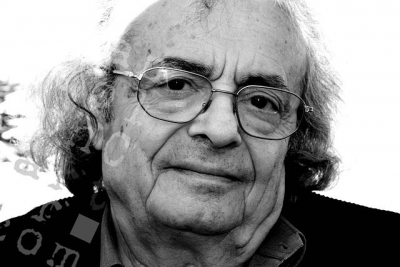
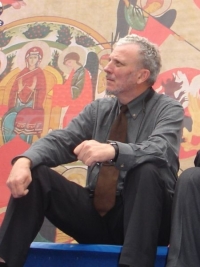
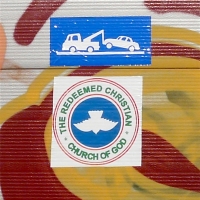

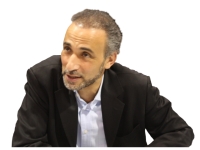
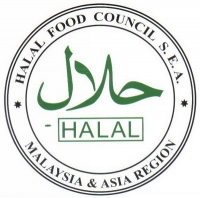
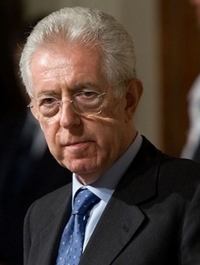
 MangoGem
MangoGem